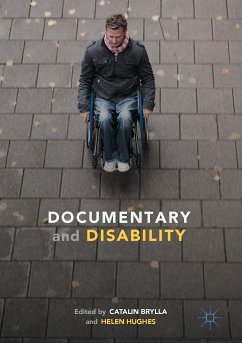
Trauma and Disability in Mad Max (eBook, PDF)
Beyond the Road Warrior's Fury
Versandkostenfrei!
Sofort per Download lieferbar
44,95 €
inkl. MwSt.
Weitere Ausgaben:

PAYBACK Punkte
22 °P sammeln!
This book explores the inter-relationship of disability and trauma in the Mad Max films (1979-2015). George Miller's long-running series is replete with narratives and imagery of trauma, both physical and emotional, along with major and minor characters who are prominently disabled. The Mad Max movies foreground representations of the body - in devastating injury and its lasting effects - and in the broader social and historical contexts of trauma, disability, gender and myth. Over the franchise's four-decade span significant social and cultural change has occurred globally. Many of the images...
This book explores the inter-relationship of disability and trauma in the Mad Max films (1979-2015). George Miller's long-running series is replete with narratives and imagery of trauma, both physical and emotional, along with major and minor characters who are prominently disabled. The Mad Max movies foreground representations of the body - in devastating injury and its lasting effects - and in the broader social and historical contexts of trauma, disability, gender and myth. Over the franchise's four-decade span significant social and cultural change has occurred globally. Many of the images of disability and trauma central to Max's post-apocalyptic wasteland can be seen to represent these societal shifts, incorporating both decline and rejuvenation. These shifts include concerns with social, economic and political disintegration under late capitalism, projections of survival after nuclear war, and the impact of anthropogenic climate change. Drawing on screen production processes, textual analysis and reception studies this book interrogates the role of these representations of disability, trauma, gender and myth to offer an in-depth cultural analysis of the social critiques evident within the fantasies of Mad Max.
Dieser Download kann aus rechtlichen Gründen nur mit Rechnungsadresse in A, B, BG, CY, CZ, D, DK, EW, E, FIN, F, GR, HR, H, IRL, I, LT, L, LR, M, NL, PL, P, R, S, SLO, SK ausgeliefert werden.












